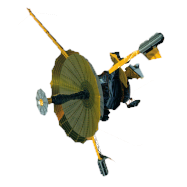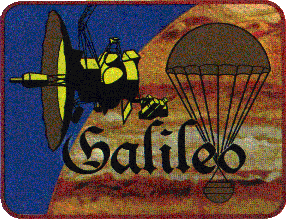GALILEO
Return to main
Galileo Table of Contents Page.
The Galileo Energetic Particles Detector
Galileo EPD Handbook
Chapter 1. Instrument Summary
Calibrations
The CMS channels are calibrated electronically and with particles in both bench and flight situations. Radioactive sources and accelerator beams are used for the particle calibrations, and calibrated electronic pulsers are used to measure thresholds. Radioactive sources are installed in the protective shield in motor position 0. A closed loop threshold calibrator is used in flight to monitor the electronically-set discrimination levels.
- Electronic Inflight Calibration
- Flight Study of CMS/TOF Event Calibrations
- EPD Flight Particle Calibration Sources
- Beam Calibrations
- Additional Calibration Information - H. Sommer
- Bench Calibrations of True vs. Apparent Rates of the CMS System
- Preflight Beam Calibrations of CMS Delta e
Return to the CMS Subsystem Index
Return to Galileo EPD Handbook Table of Contents Page.
Return to main
Galileo Table of Contents Page.
Return to Fundamental
Technologies Home Page.
Updated 8/23/19, Cameron Crane
QUICK FACTS
Manufacturer: The Galileo Spacecraft
was manufactured by the Jet Propulsion Laboratory,
Messerschmitt-Bölkow-Blohm, General Electric, and the
Hughes Aircraft Company.
Mission Duration: Galileo was planned to have a mission duration of around 8 years, but was kept in operation for 13 years, 11 months, and 3 days, until it was destroyed in a controlled impact with Jupiter on September 21, 2003.
Destination: Galileo's destination was Jupiter and its moons, which it orbitted for 7 years, 9 months, and 13 days.
Mission Duration: Galileo was planned to have a mission duration of around 8 years, but was kept in operation for 13 years, 11 months, and 3 days, until it was destroyed in a controlled impact with Jupiter on September 21, 2003.
Destination: Galileo's destination was Jupiter and its moons, which it orbitted for 7 years, 9 months, and 13 days.



